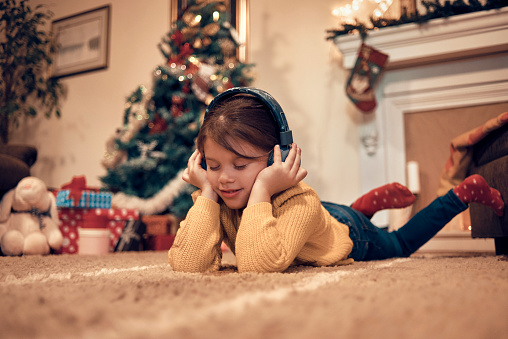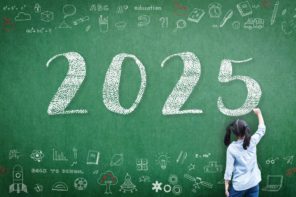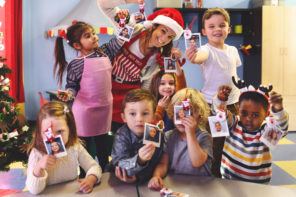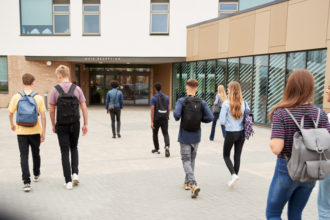Over half of U.S. parents recently polled by the American Speech-Language-Hearing Association (ASHA) and YouGov said they plan to purchase a tech gift for their child this holiday season.
And while you consider many factors when purchasing products like smartphones, tablets, video game consoles and earbuds/headphones for their kids, hearing safety may be overlooked. But there is some risk in doing so. According to the World Health Organization, 1.1 billion young people worldwide are in danger of experiencing hearing loss from exposure to noisy popular technology and leisure events such as loud concerts and sporting events.
Keeping Young Ears Safe
In the poll, 70% of parents of children under age 18 are concerned about their child developing hearing damage from using popular technology devices such as music players, tablets and smartphones—and 86% think their children listen to their devices at volumes that are too loud.
Rest assured, using these devices with earbuds or headphones does not mean your child’s hearing is necessarily in jeopardy, but it’s important to be mindful that listening to devices at too-loud volumes, for too long can cause noise-induced hearing loss. This type of hearing loss is entirely preventable, but once it occurs, it is irreversible. Help kids learn to protect their ears, so they can continue enjoying their technology—and good hearing—for many years to come.
Shopping Tips
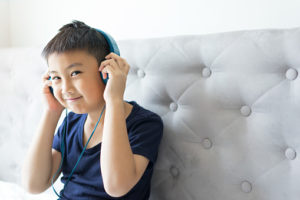
As you shop, consider whether products have the following:
- Volume-Control Features. Devices and accessories with volume limiters can help with safe listening. Yet, testing has shown these “kid-safe” products still often go beyond their claimed maximum volume outputs. So, check-in on the volume themselves as well.
- Noise-canceling Capabilities. Earbuds or headphones with noise-canceling features can lessen the need to turn up the volume since outside noise is reduced or eliminated.
- Kid-Size Fit. A snug fit is important, as loose-fitting earbuds or headphones can cause sound leakage—and may be yet another reason to crank the volume.
Recently, the WHO and the International Telecommunication Union issued the first-ever safe listening standards for personal technology devices.
For children, they recommend listening volumes no higher than 75 decibels—and for no longer than 40 hours a week. Many headphones and other products on the market branded as kid-safe limit the volume at 85, 90 or even 95 decibels. So even if their product is working as stated (though, not always the case) and the volume is capped, it is still not safe for kids to turn them up all the way.
Safe Listening Tips
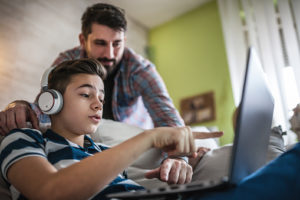
Another key takeaway in the ASHA-You Gov poll is that parents are on their kids a lot about turning the volume down, often to no avail—82% say they ask their child to turn down the volume at least sometimes; 25% report they do so frequently and 19% say they ask them to turn it down all the time.
If you’re feeling like a broken record on this front, there are other ways to encourage better listening habits. ASHA suggests:
- Listen at Half Volume. Saying, “Turn it down” is okay, but it’s not specific and it’s subjective. Teach kids to keep the volume at half level.
- Take Listening Breaks. Encourage kids to take listening breaks every hour, even if for just a few minutes. This can make a big difference for their hearing health.
- Have A Plan. If you have a family technology plan (a great idea, if you don’t!), consider adding an item about safe listening. Make keeping the volume down and taking listening breaks formal conditions of tech privileges.
- Instill Hearing Appreciation. Explain why you are asking your child to practice safe listening. Do you like listening to your music? I want you to continue to enjoy it for a long time to come—something that will be much more difficult if you damage your hearing.
- Model Safe Listening. Practice what you preach as a parent. Be mindful of your own volume and listening duration.
Enjoy the holiday season—and happy (and safe!) gifting!
Regina E. Zappi, Au.D., CCC-A, is Associate Director, Audiology Professional Practices, at the American Speech-Language-Hearing Association.

